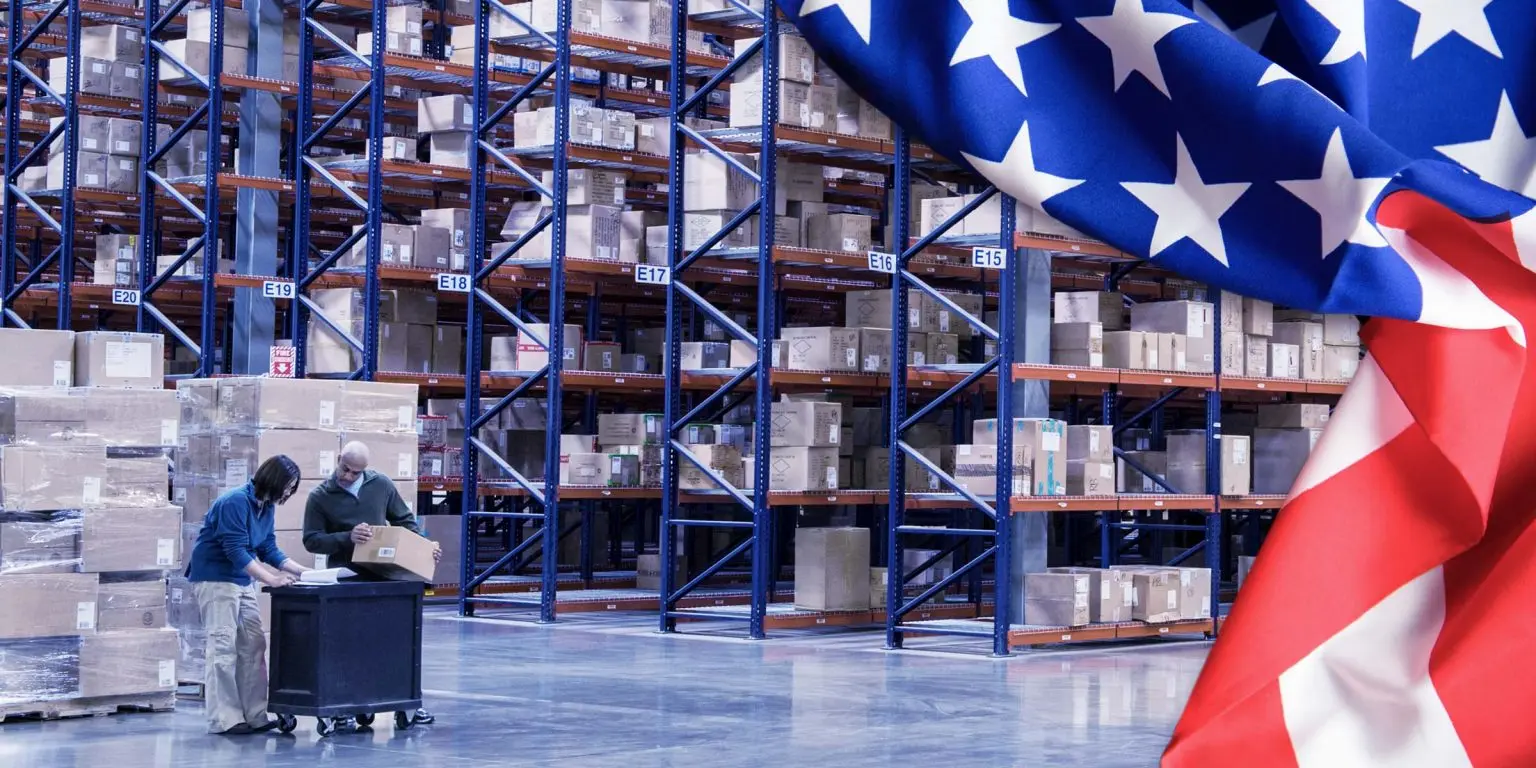Dropshipping can be a great business model for any aspiring entrepreneur in the United States. Why? Well, the US is the second biggest ecommerce market in 2024 after China and the dropshipping market is forecasted to reach $301 billion in 2024, and will continue to grow, reaching $476.1 billion by 2026. If you want more reasons to start dropshipping, check out this article on why we believe dropshipping is still worth it in 2024.
Now, we imagine that you clicked on this article as you already want to start dropshipping but want to know more about the legal risks of dropshipping in the US. Well, navigating the legal landscape of dropshipping in the US requires an in-depth understanding of potential risks and compliance requirements.
So, read on as we explore the legal risks associated with dropshipping in the US and how you can mitigate them for a smooth and successful business operation.
We are not legal professionals and so this is not actual legal advice. If you want legal advice, we recommend finding an attorney specialized in this type of work. This article is about our personal experience and recommendations on how to start and build successful dropshipping businesses in the US.
Table of Contents
The promise and reality of dropshipping
The promise
Dropshipping offers several compelling advantages:
- Low Startup Costs: You don’t need to purchase inventory upfront.
- Flexibility: Operate your business from anywhere with an internet connection.
- Scalability: Easily add new products without worrying about storage.
The reality
However, the reality is that dropshipping also involves various legal challenges that can affect your business. From dealing with supplier issues to complying with consumer protection laws, understanding these risks is crucial.
Is dropshipping legal in the US?
But first, we want to make sure you know that, yes, it’s legal to dropship in the US, as long as you follow some specific rules, such as:
- Credit card & payment merchant facilities for dropshipping businesses are still under improvement.
- If you are a foreign-based dropshipping business then there are a few tax issues you need to be aware of.
- For dropshipping in the US, sellers need to have a US Reseller Permit for online store owners based outside the US.
- Dropshippers with stores based outside the US cannot qualify for credit with US-based suppliers.
Now, let’s see what are some of the most important legal risks when dropshipping in the US.
Legal risks in US dropshipping
Supplier reliability
One of the biggest risks in dropshipping is the reliability of your suppliers. Choosing the wrong supplier can lead to delays, poor-quality products, and unhappy customers, all of which can result in legal troubles.
Read more: Top 5 things to consider before getting a dropshipping supplier
How to mitigate this risk
- Thorough vetting: Research and vet suppliers thoroughly. Look for reviews, ask for references and order samples. Or choose a dropshipping platform that does all these for you, like AppScenic.
- Contracts: Establish clear contracts with suppliers outlining expectations, responsibilities, and consequences for non-compliance.
- Backup suppliers: Always have backup suppliers to ensure continuity if your main supplier fails.
Consumer protection laws
In the US, consumer protection laws are stringent. These laws are designed to safeguard consumers against unfair or deceptive business practices. As a dropshipper, you must comply with these regulations to avoid legal issues.
Key regulations
- Truth in advertising: Ensure all advertising and marketing claims are truthful and not misleading.
- Refund policies: Clearly state your refund and return policies. US law mandates that these policies be fair and accessible.
- Product safety: Ensure the products you sell meet US safety standards. Selling non-compliant products can lead to recalls and legal penalties.
Start by reading all you can on the US Bureau of Consumer Protection.
Intellectual property rights
Selling products that infringe on intellectual property rights can lead to serious legal consequences. This includes counterfeit goods or products that violate patents, trademarks, or copyrights. Here’s how you can prevent this from happening.
How to mitigate this risk
- Verify authenticity: Ensure that your suppliers are providing genuine products. Avoid dealing with suppliers who can’t prove the authenticity of their goods.
- Trademark searches: Conduct trademark searches to ensure the products you sell do not infringe on existing trademarks.
- Legal advice: Consult with a legal professional to understand intellectual property laws and ensure compliance.
You can check the USPTO’s Trademark Electronic Search System or Google Patents to find out if any intellectual property rights apply to a product you’re selling.
Read more: How to handle counterfeit goods in dropshipping
Sales tax compliance
Sales tax compliance is a complex area in the US, with each state having its own regulations. As an online retailer, you are responsible for collecting and remitting sales tax in states where you have a tax nexus.
Understanding tax nexus
A tax nexus is a physical or economic connection to a state that requires you to collect sales tax. This can be established through:
- Physical presence: Having an office, warehouse, or employees in a state.
- Economic nexus: Exceeding a certain threshold of sales or transactions in a state.
Mitigating the risk
- Stay informed: Keep up-to-date with the sales tax laws in each state where you have a nexus.
- Use software: Utilize tax compliance software to automate sales tax collection and remittance.
- Consult experts: Work with a tax professional to ensure compliance and avoid costly mistakes.
Now, we won’t get into too many details about taxes as this is a much too complicated subject for this article. If you want to know more about this, you can check out our video below on how to set up a company in the USA for your dropshipping business or read this article on the steps you need to take to open a dropshipping business in the USA. Of course, as we said, you should also consult a legal advisor before starting any dropshipping business in the US.
Data privacy and security
With the rise of ecommerce, data privacy and security have become a must. You must comply with regulations such as the California Consumer Privacy Act (CCPA) and make sure that your customers’ data is protected.
Key compliance steps
- Data collection policies: Clearly state your data collection and privacy policies. Make sure you obtain explicit consent from customers before collecting their data.
- Secure transactions: Use secure payment gateways and encryption to protect customer data during transactions.
- Breach response plan: Have a plan in place to respond to data breaches promptly and inform affected customers.
Shipping and fulfillment issues
Shipping delays, lost packages, and fulfillment errors can lead to customer dissatisfaction and potential legal claims. Ensuring reliable shipping and clear communication is essential.
Mitigating the risk
- Reliable carriers: Partner with reliable shipping carriers and offer tracking options to customers. Or choose a platform like AppScenic that only works with reliable suppliers that ship fast and provide order tracking.
- Clear communication: Inform customers about expected shipping times and any potential delays.
- Efficient resolution: Handle shipping issues promptly and offer solutions such as refunds or replacements to maintain customer trust.

How to build a legally compliant dropshipping business in the US
Choose the right business structure
Selecting the right business structure is critical for legal protection and tax purposes. These are some of your options.
- Sole Proprietorship: Simple and low-cost but offers no personal liability protection.
- Limited Liability Company (LLC): Provides liability protection and is relatively easy to set up.
- Corporation: Offers the highest level of liability protection but is more complex and costly to establish.
We recommend setting up an LLC, so check out all the steps to incorporate your business in the US in this article.
Register your business
Ensure your business is registered in the state where you operate. You should obtain any necessary business licenses or permits to comply with local regulations.
Draft clear policies
Having clear and transparent policies for refunds, returns, and shipping can prevent misunderstandings and legal disputes. Here’s an insightful article on how to create a great dropshipping return policy.
Consult with legal professionals
Regular meetings with legal professionals can help you stay compliant with evolving laws and regulations. Legal advice is a must in navigating the complexities of dropshipping.
Stay informed
Continuously educate yourself about the legal landscape of dropshipping. Join ecommerce forums, attend webinars, and read industry publications to stay informed.
Case study: navigating legal risks successfully
The challenge
“GreenGadgets” is a US-based dropshipping store specializing in eco-friendly tech products. They faced challenges with supplier reliability, intellectual property issues, and sales tax compliance.
The solution
- Supplier vetting: GreenGadgets chose to work with dropshipping automation platforms like AppScenic that were doing thorough vetting and had contracts only with reliable suppliers.
- Intellectual property compliance: They conducted trademark searches and consulted with legal professionals to ensure compliance.
- Sales tax automation: They implemented tax compliance software to automate sales tax collection and remittance.
The outcome
By addressing these legal risks proactively, GreenGadgets built a reputable and legally compliant dropshipping business. They avoided costly legal issues and maintained a great customer relationship.
Conclusion
So, if you want to build a successful and sustainable business in the US it’s essential to understand the legal risks of US dropshipping and how to mitigate such risks. From supplier reliability to consumer protection laws, intellectual property rights, sales tax compliance, and data privacy, each of these areas needs your careful attention so that you can take proactive measures.
Now, you can mitigate most of these legal risks only by staying informed, consulting with professionals, and implementing best practices. And by doing this, you can then keep your focus on growing your dropshipping business.












